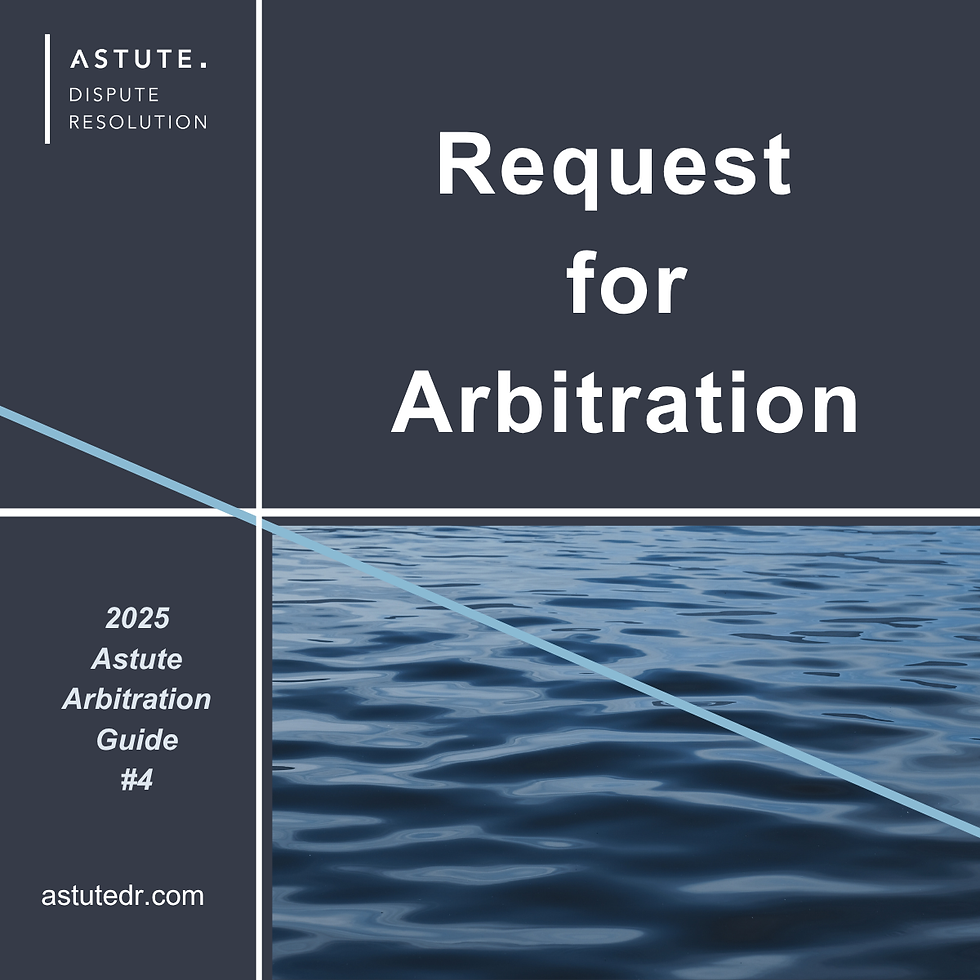Key Recent Decisions on Investment Treaty Interpretation by the Swiss Federal Tribunal
- Astute Dispute Resolution

- Nov 18, 2024
- 3 min read
Updated: Nov 22, 2024

The Swiss Federal Tribunal (SFT), as the sole authority for addressing challenges to arbitral awards rendered in Switzerland [Federal Act on Private International Law (PILA), Article 191], has delivered 29 decisions on challenges or enforcement requests involving investment treaty awards since 2000. Notably, 15 of these decisions were issued between 2020 and 2024, contributing not only to Swiss arbitration case law but also to a developing body of jurisprudence specifically addressing investment treaties. As Switzerland solidifies its role as a favorable jurisdiction for arbitration, the SFT’s high standards and supportive stance on arbitration reinforce its reputation for predictability and procedural clarity, making it an ideal seat for (intra-EU) investment arbitrations conducted outside the ICSID framework.
In a groundbreaking decision of 3 April 2024, the SFT took the opposite stance from the EU Court of Justice’s in the Moldova v. Komstroy case, affirming that Article 26 of the Energy Charter Treaty (ECT), which provides for investor-state arbitration, is not overridden by EU law. This decision confirmed that intra-EU disputes may still be submitted to arbitration under Article 26 and the sunset clause in Article 47(3) of the ECT [Decision of 3 April 2024, 4A_244/2023, Spain v. EDF, para. 7].
The SFT has also clarified important issues regarding corporate restructuring of investments. In its first-ever decision to set aside an investment treaty award, the SFT ruled that, absent a “denial of benefits” or “origin of capital” clause in the treaty text, the relevant criterion for determining jurisdiction is the nationality of the investment holder. The existence of a “transfer of value” related to restructuring was deemed irrelevant for jurisdictional purposes unless there is an abuse of rights [Decision of 25 March 2020, 4A_306/2019, Venezuela v. Clorox, para. 3.4]. Furthermore, the SFT emphasized that alleged abuses through restructuring must be assessed based on whether the dispute was foreseeable at the time of restructuring [Decision of 25 March 2020, 4A_306/2019, Venezuela v. Clorox, para. 3], judged from the perspective of a reasonable investor. The burden of establishing foreseeability rests on the party making the allegation, and if foreseeability is proven, the restructuring is presumed to be dispute-related unless the investor justifies otherwise [Decisions of 22 May 2022, 4A_398/2021, Venezuela v. Clorox, para. 5.2.4; and of 24 August 2022, 4A_492/2021, Russia v. Yukos, para. 8.1].
In another key interpretation concerning the Singapore-China BIT of 1985, the SFT held that, where the BIT assigns jurisdiction over expropriation legality to the host state’s courts while granting arbitral jurisdiction solely over compensation amounts, the treaty must be interpreted as limiting the arbitral tribunal’s scope to compensation issues [Decision of 11 January 2024, 4A_172/2023, China v. Asiaphos & als].
Additional recent decisions have addressed the nature of “investments” under the ECT, including a ruling that loans to a parent company within the host state qualify as investments when they relate to an economic activity in the energy sector [Decision of 24 August 2022, 4A_492/2021, Russia v. Yukos, paras. 7.4.6-7.4.8]. The SFT has also clarified that legality is not an implicit condition for jurisdiction unless expressly required by the treaty, such as in cases involving the ECT, where the legality of an investment does not affect the arbitral tribunal’s jurisdiction absent an explicit clause [Decision of 24 August 2022, 4A_492/2021, Russia v. Yukos, paras. 9.1.1-9.1.2; see also Decision of 11 December 2018, 4A_65/2018, India v. Deutsche Telekom, para. 4.3.1].
The SFT’s recent decisions on these issues provide essential clarity not only for arbitration practitioners but also for dealmakers and their lawyers, as well as third-party funders. These rulings reflect Switzerland’s commitment to procedural rigor and an arbitration-friendly approach that will likely continue to contribute to shaping investment treaty arbitration the years to come.
See the highlights of this post in video
⬇️



